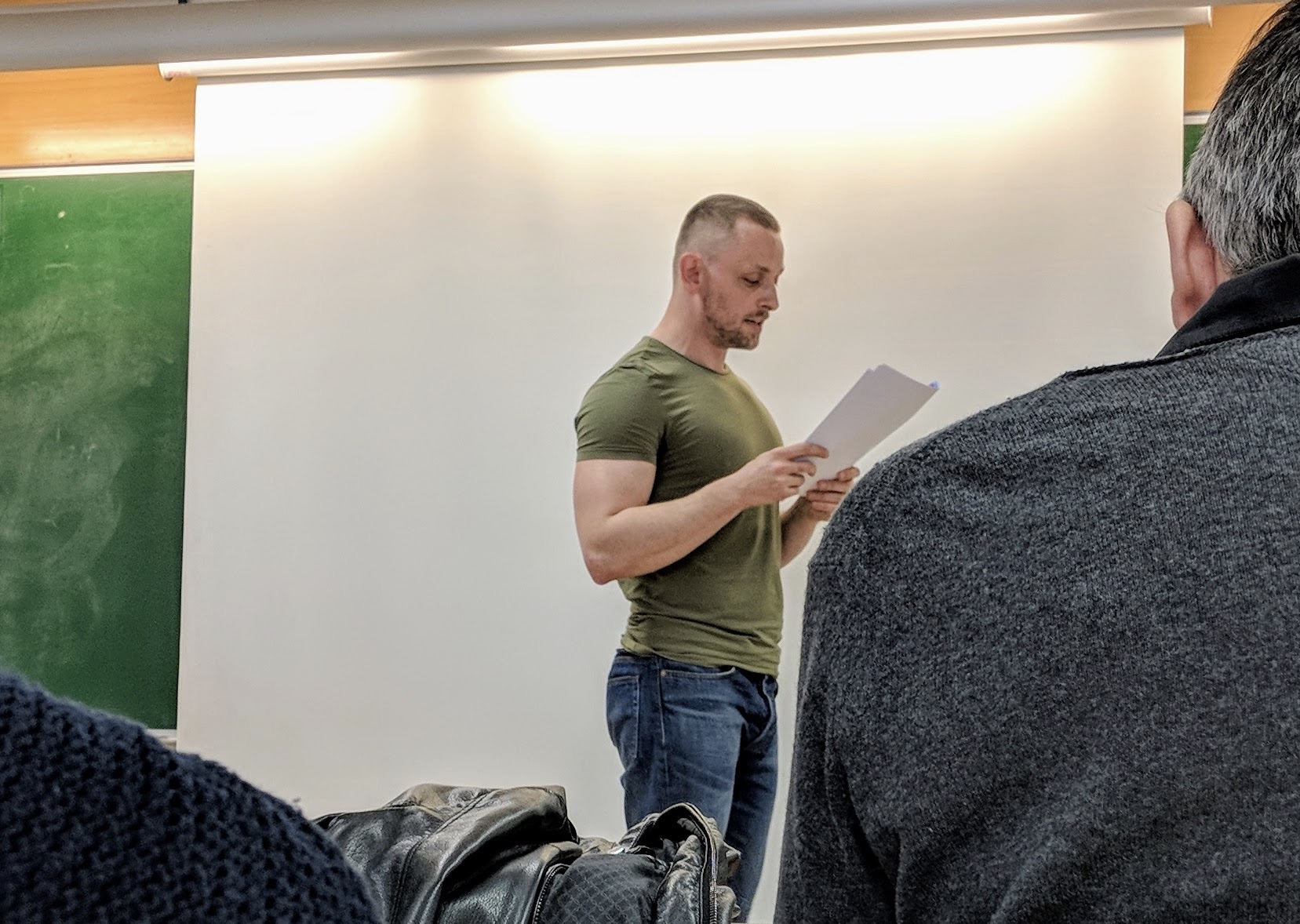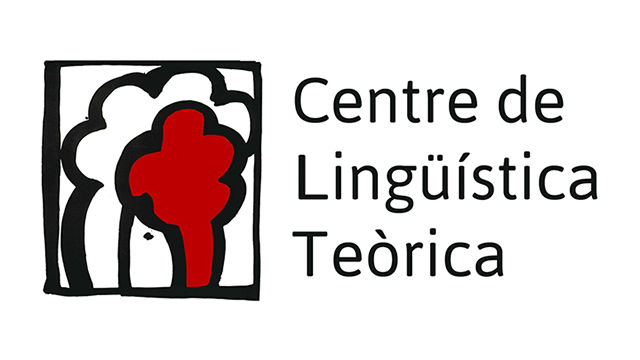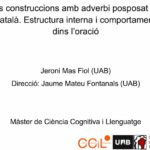
W. Lewandowski & J. Mateu – Motion events again: Delimiting variation patterns
Seminari del CLT
Motion events again: Delimiting variation patterns
WOJCIECH LEWANDOWSKI & JAUME MATEU (UAB)
Divendres, 31 de gener de 2020
Aula 202, 15:30
Languages can be classified as either satellite-framed or verb-framed depending on where they characteristically express Path and Manner, two basic components of a motion event (Talmy 1991, 2000). Satellite-framed languages (e.g., English, German, Polish) express Path in a satellite around the verb, leaving the verb free to encode Manner (e.g., Eng. The bottle floated into the cave). In contrast, verb-framed languages (e.g., Catalan, Spanish, Turkish) lexicalize Path in the verb root and Manner in an optional adjunct (e.g., Sp. La botella entró en la cueva flotando ‘The bottle entered the cave floating’). Despite a prolific body of research on cross-linguistic constraints in the lexicalization of motion (e.g., Aske, 1989; Beavers et al. 2010; Fábregas 2007) many questions still remain unanswered, especially with respect to intratypological as well as language-internal variation. In this talk, we aim to further delimit motion event encoding patterns by paying special attention to the interplay between abstract argument structure constructions (Goldberg, 1995), verbs, and directional satellites. More specifically, we focus on two closely interrelated aspects of motion event lexicalization that have been largely neglected in earlier work. On the one hand, following Sorace’s (2000, 2004) idea of gradience, we suggest that the manner verb category is not monolithic, but rather encompasses two basic subtypes, namely: (i) pure manner verbs such as e.g., dance and float and (ii) directional manner verbs such as e.g., run and jump (cf. Spanish *Pedro bailó a la cocina ‘John danced to the kitchen’ vs. Pedro corrió a la cocina ‘John ran to the kitchen’; see also Mateu & Rigau, 2010). On the other hand, following earlier work by Acedo-Matellán (2016) and Lewandowski & Mateu (2014), we show that the (in)compatibility between verbs and motion constructions is further constrained by the morphological status of directional satellites whereby morphologically bound satellites such as prefixes impose heavier restrictions on manner verbs than morphologically free satellites such as particles (cf. English Peter danced into the kitchen vs. Polish *Piotr wtańczył do pokoju ‘Peter into-danced to the kitchen’). Overall, our results, based on data from Germanic, Romance, and Slavic languages, suggest that the aforementioned distinctions (i.e., types of manner verbs and types of satellites) serve as two important factors in determining possible and impossible constructional patterns both within languages (i.e., intralinguistic variability) and language types (i.e., intratypological variability).


